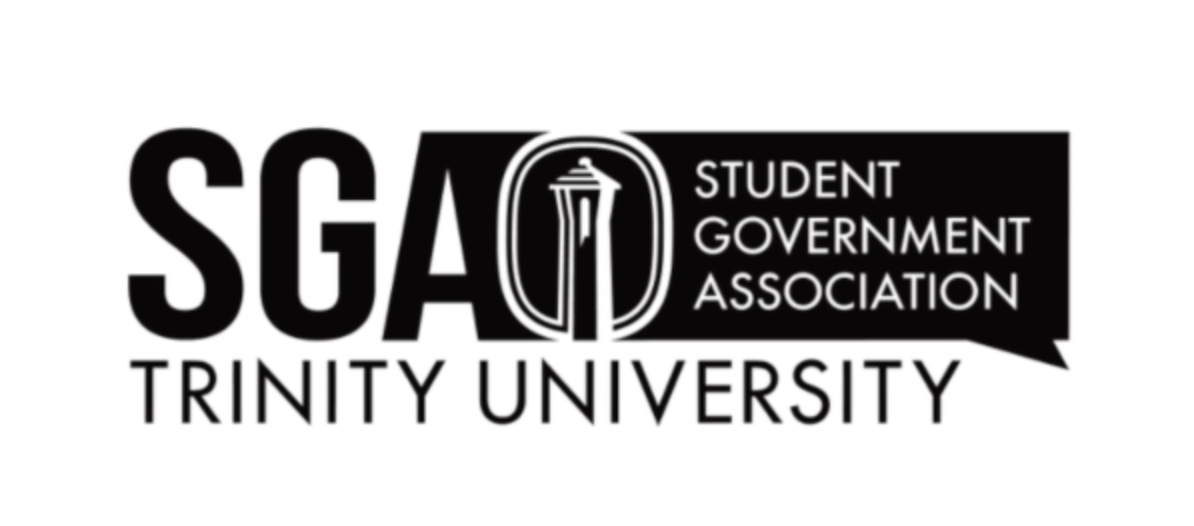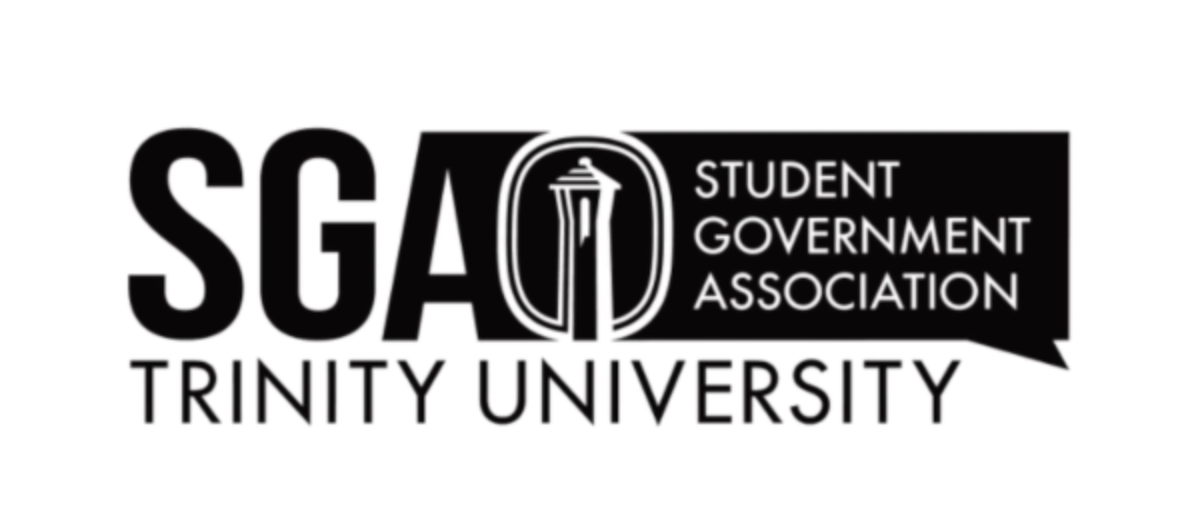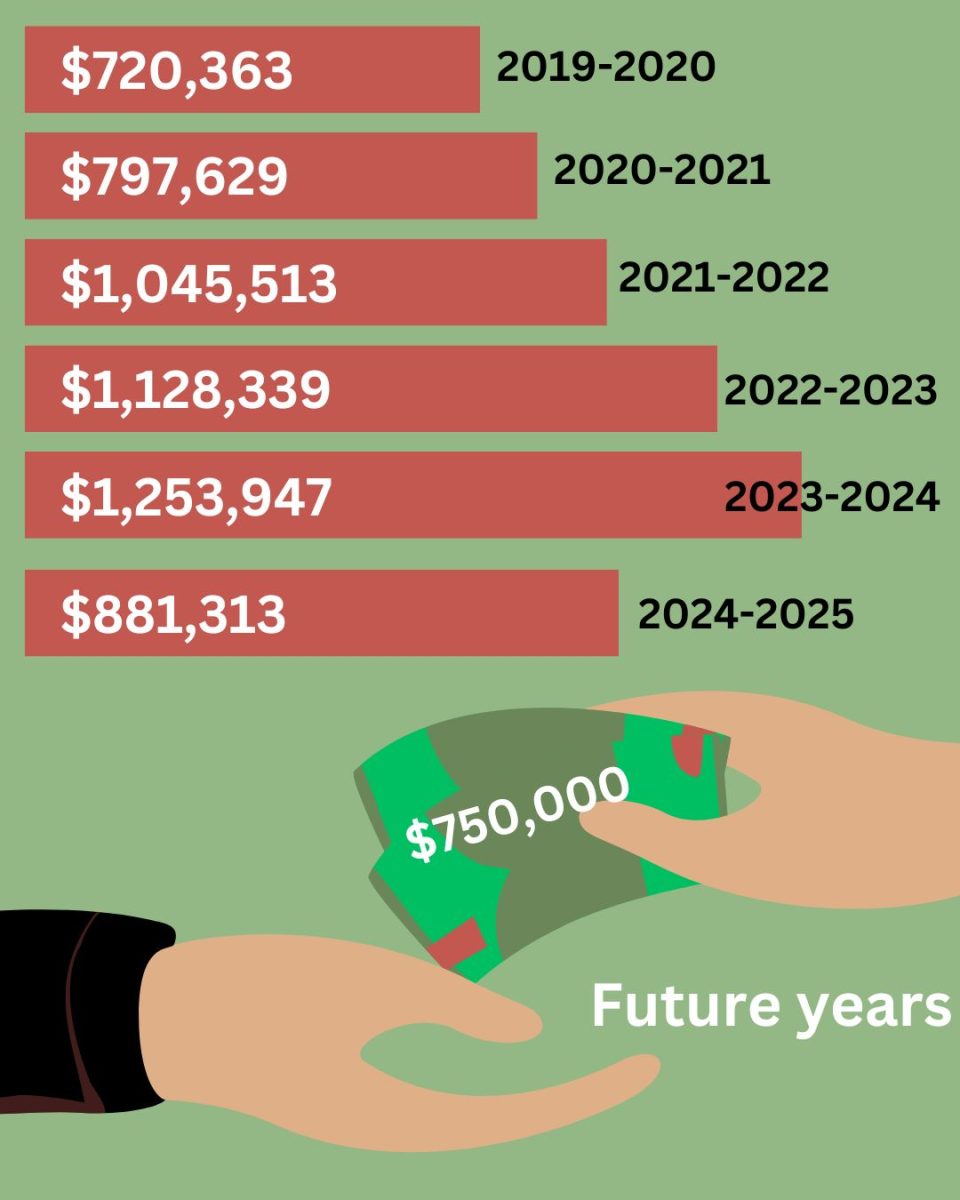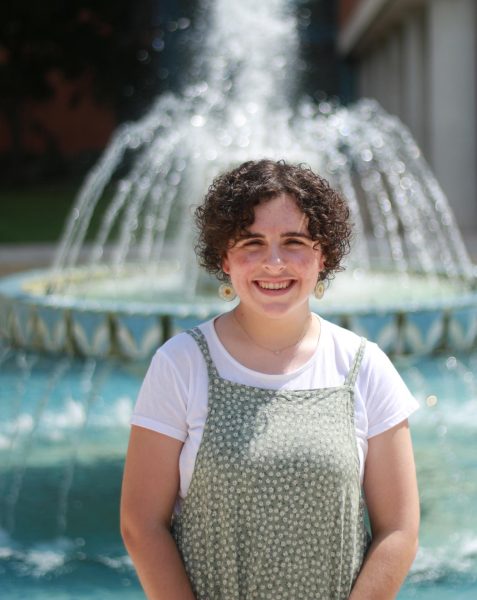The following covers the SGA meeting on April 3rd
Faculty Handbook Approval
Orrin Shindell, associate professor of physics and astronomy, presented to SGA to gain its approval of a proposed update to the faculty handbook. This update would be a new section on a Student Accessibility Services (SAS) Advisory Committee, intended to create greater openness between SAS, the faculty, students and administration. Senior Senator Nadesh Vaithianathan motioned to add the section regarding this new committee, and the motion passed.
Staff Chat: Brandi Jones, Vice President for Inclusive Engagement
Jones has now been on campus for about 30 days, and spoke about how she and the administration don’t want to do anything “cookie cutter.” She is focused on really spending time with members of the Trinity community to find Trinity experiences that are overlooked or not as well-known. She acknowledged that, although she has been putting out surveys to gauge the campus climate, surveys cannot tell the whole story, and she wants to delve into the question of what it really means to belong at Trinity.
Members of SGA shared with her some student experiences that they believed warranted her attention. Senior Senators Lucy Orosco and Maria Duenas both discussed how the international student experience can feel quite isolating at Trinity. President Danny Nguyen commented on the socioeconomic differences of students, and Senior Senator Adam Garza talked about how difficult the STEM ecosystem can be for first-generation students. Sophomore Senator Molly Van Ackeren brought up how limiting it can be to be an engineering major at Trinity.
SAF Projection
Vice President Caterina Mora presented projections for next year’s available funds coming from the Student Activity Fee (SAF). With current carry-forward prediction at the time of her presentation, SGA is anticipating approximately $932,812.95 to be used to fund student organization proposals. This is less than their budget for this year, where they started out with a large amount of money in carry-forward from COVID years. Vice President Mora cautioned the senators to be considerate in their funding decisions, since the projected expenses for 2024-2025, including the same projected university sponsored organization (USO) allocation as this year, could possibly put the budget into the negatives.
USO Funding
TUVAC and Tiger Breaks. Requesting $34,760.00.
Representatives from the Trinity University Volunteer Action Community (TUVAC), an organization dedicated to connecting students with volunteer opportunities, presented their organization’s budget for the upcoming year. Their primary expenses are related to the signature events they put on and Tiger Breaks, alternative spring break programming in which students can participate in volunteer work. After a year of roadblocks, including advisors and a student coordinator leaving the group, TUVAC sought funding to bounce back next year, asking for $34,760.
Vice President Mora issued a disclaimer that the budget on paper was different than the one in the presentation because the group had made a last-minute change. However, the senators were instructed to go off the budget on paper in order to respect the USO funding procedure and deadlines. Questions from SGA members mostly centered around confusion over the similarity of two line items about merch, the state of hiring another advisor (which the TUVAC presenters clarified they had no control over) and the interest in volunteerism at the school. TUVAC has had fewer students participate in their events this year than in the past, so President Nguyen asked how they could increase attendance.
Discussion about the funding presentation was tabled until after the registered student organization proposals. Several members of SGA questioned the efficiency of the funds going to TUVAC and the inconsistencies in their presentation, especially given the fact that TUVAC’s volunteer hours have gone down from in the past. Senator Orosco mentioned that the presenters weren’t sure about their answers and sometimes changed them. Junior Senator Harrison Tinker recognized that TUVAC provides value to campus, but also suggested that their organization has not been doing as much as they are asking for in funding. A straw poll revealed that many senators leaned toward partially funding TUVAC.
Senate Funding
The discussions and votes regarding the funding proposals were tabled until after all the groups had presented, but in the interest of clarity the deliberations and votes are included in the same sections as the presentations.
Swim Club — Nationals. Requested $3,233.82. Funded $2,883.82.
Swim Club presented to get funds to send five students to a national-level swim meeting in Indianapolis in June that overlaps with the Olympic trials. Recreational Sports covers some of their expenses, though they still require some travel funds. They have gone to nationals for the past two years, and they said it was a good way for Trinity to gain some national recognition.
First-year Senator Patricia Hermoso suggested funding the nationals tournament but not the Olympic trials, which was included in the funding presentation. Junior Senator Ella Charbonnet motioned to fund nationals but not the trials, which passed.
Women’s Ultimate Frisbee — South Central Regionals. Requested $11,055.77. Funded $8,750.35.
Women’s Ultimate Frisbee — DIII Nationals. Fully funded $8,740.00.
The Women’s Ultimate Frisbee team, Altitude, made two different funding requests: one for regionals in Kansas City and one for nationals in Milwaukee. Altitude is ranked 12th in the nation for DIII women’s frisbee and has already qualified for regionals, where they plan to take 17 members, allowing them to have subs for the games. Because of the locations of these tournaments, driving there would be quite difficult, and thus their expenses are primarily travel- and lodging-related.
DEI Chair Trinity Hatchett asked how they would qualify for nationals, and the presenters clarified that they would have to come in first or maybe second to get a bid to nationals (if they do not get a bid, they would simply return any money funded back to SGA). Sophomore Senator Molly Van Ackeren raised a concern about the cost of the Airbnb, saying that she found cheaper options in Kansas City. The presenters responded that the competition fields are a decent trip outside of the city and that the team needs to be at the fields at eight in the morning.
Deliberations for Altitude took place after the Men’s Frisbee deliberations. Senator Orosco and senior Senator Nadesh Vaithianathan both expressed that they thought the Altitude proposals should be half-funded. Junior Senator Andrew Phillips and first-year Senator Madelyn Stovall argued that the same standard applied to the men should be applied to the women. Applying the same partial funding logic as with the men’s team, Senator Orosco motioned to partially fund the regionals tournament $8,750.35, which passed. Sophomore Senator Omar Ratrut motioned to fully fund nationals, which also passed.
Men’s Ultimate Frisbee — Regionals. Requested $9,511.40. Funded $6,869.34.
The Men’s Ultimate Frisbee team, Turbulence, has not yet qualified for their regionals tournament, but came to request funds in case they do make it by taking the top spot at the Texas tournament. Their primary expenses, as with the other proposals, were hotels and transportation. Also like the other proposals, Recreational Sports covered their registration fee. DEI Chair Hatchett asked if all members of the team would attend. The presenter said that they would probably have fewer than the maximum number of 18 and would have at least 13 players go to regionals.
As this was the first funding proposal that was deliberated on, Senator Orosco raised her concern about the way SGA handles funding deliberations for sports vs. academic conferences, with the latter often receiving far more debate in her opinion. Junior Senator Joy Areola said that at this point the senators need to focus on the request at hand. Vice President Mora suggested that it would be best to apply the same reasoning to all the requests because expenses were so similar.
The senators leaned toward partially funding Turbulence, but disagreed about how to decide on a number for partial funding. After some back-and-forth, Senator Ratrut motioned to partially fund them $6,869.34 — only funding 13 people based on the cost per person — which passed.
Officer Reports
Chief of Staff Emily King got recommendations on what she should order SGA for dinner next week. DEI Chair Hatchett asked those interested in helping with the Block Party to send her a message. Senator Tinker motioned for SGA to enter into an executive session, and the motion passed, which means that the end of the meeting was not open to the public or the Trinitonian.








